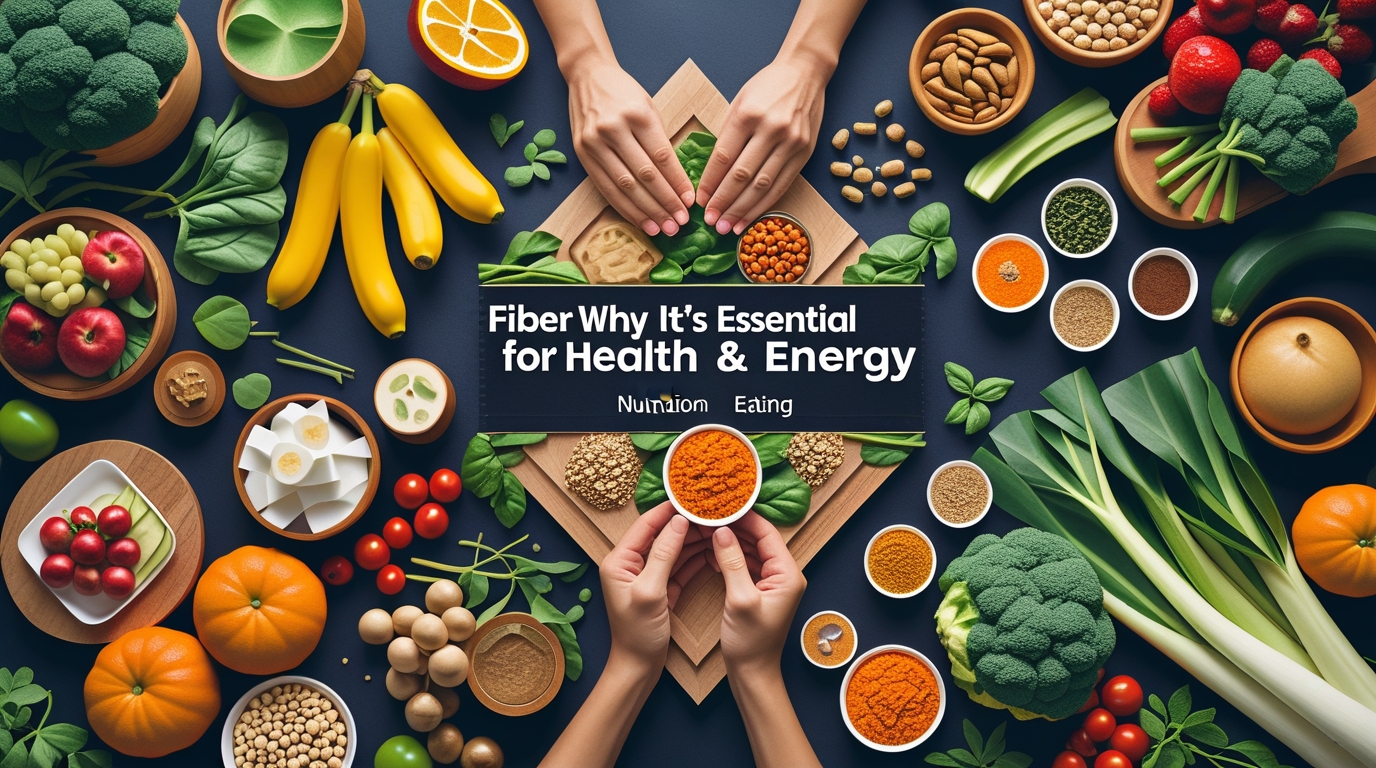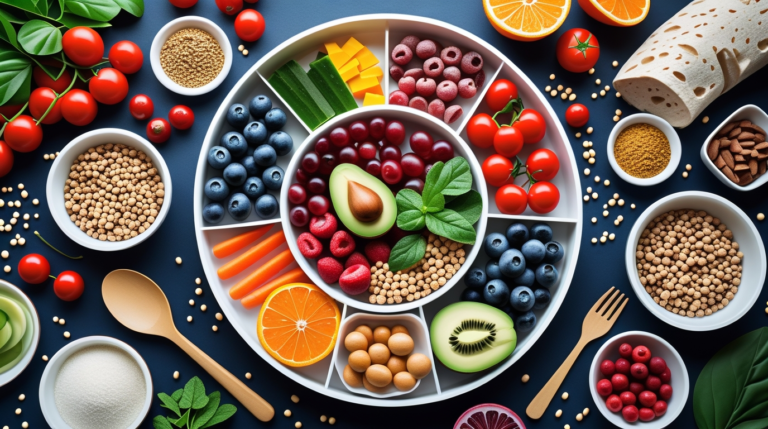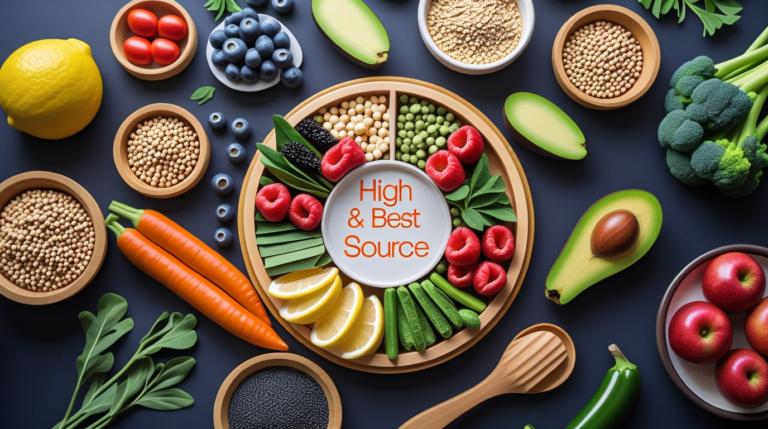In today’s fast-paced world, maintaining high energy levels while ensuring good health is crucial. One of the often-overlooked secrets to achieving this balance is through our diet, specifically the consumption of fiber. Fiber is essential for health and energy, and yet many still underestimate its profound benefits. This comprehensive guide will delve into why fiber should be a staple in your diet, offering valuable insights into its numerous advantages.
Understanding Fiber: What Is It and Why Does It Matter?
Before diving into the benefits, it’s essential to understand what fiber is. In simple terms, fiber is a type of carbohydrate found in plant-based foods. Unlike other carbohydrates, it is not digested by the human body. Instead, it passes through the digestive system, which is where it works its magic.
The Two Main Types of Fiber
Fiber is broadly categorized into two types: soluble and insoluble. Each plays a unique role in promoting health:
- Soluble fiber dissolves in water to form a gel-like material. It can help lower blood cholesterol and glucose levels. Good sources include oats, peas, beans, apples, and citrus fruits.
- Insoluble fiber promotes the movement of material through the digestive system and increases stool bulk. If you’re struggling with constipation or irregular stools, this is the type that can help. Whole-wheat flour, wheat bran, nuts, beans, and vegetables like cauliflower and potatoes are great sources.
The Health Benefits of Fiber
1. Fiber and Digestive Health
One of the most recognized benefits of fiber is its positive impact on digestive health. By aiding regular bowel movements, a diet rich in fiber can prevent or relieve constipation. Additionally, a healthy digestive system can help protect against diseases such as diverticulitis and even colorectal cancer.
A high-fiber diet also promotes the proliferation of healthy gut bacteria. These beneficial microbes play an essential role in digestion and nutrient absorption.
2. Weight Management
For those aiming for weight loss or maintenance, fiber is an invaluable ally. Fiber-rich foods are usually more filling and less energy-dense, meaning they have fewer calories. High fiber intake can promote satiety, reducing overall calorie intake throughout the day.
Additionally, the slow digestion process associated with high-fiber foods helps regulate blood sugar levels, further supporting weight management by reducing the likelihood of sudden cravings.
Read more on effective weight loss strategies.
3. Cardiovascular Health
Research has shown that a diet high in fiber can lead to improved cardiovascular health. Soluble fiber, in particular, can help lower blood cholesterol levels by interfering with the absorption of dietary cholesterol.
Moreover, a diet abundant in fiber can also regulate blood pressure and reduce inflammation, contributing to a healthier heart. Remember, small dietary changes, like increasing fiber intake, can have significant impacts on heart health.
Energy Boost: How Fiber Fuels Your Day
1. Steady Energy Levels
One of the surprising benefits of fiber is its role in maintaining steady energy levels. By slowing down digestion, fiber ensures a gradual release of glucose into the bloodstream. This prevents the rapid spikes and crashes in energy that come with many high-sugar foods, providing sustained energy throughout the day.
By integrating fiber-rich foods into your meals, you’re setting up your day to be more productive and less prone to energy slumps.
Explore more on maintaining energy through nutrition.
2. Supports Active Lifestyles
For those leading active lifestyles, whether through exercise or demanding work schedules, fiber is critical. It ensures you have the fuel needed to get through the day without feeling fatigued. It’s especially important for athletes or those involved in regular exercise, as proper nutrition, including adequate fiber intake, aids in recovering energy and rebuilding muscle.
Practical Tips for Increasing Fiber Intake
1. Incorporate More Whole Foods
One of the easiest ways to increase fiber intake is to focus on consuming more whole foods. This includes fruits, vegetables, legumes, and whole grains. Swap out refined products for whole grain alternatives, and make fruits a part of your daily snack routine.
2. Gradual Change
Incorporating fiber into your diet doesn’t have to be overwhelming. Start small by gradually adding more fiber-rich foods to each meal. Remember, too much fiber too quickly can cause digestive discomfort. It’s important to allow your body to adjust.
Discover recipes high in fiber to try at home.
Conclusion
It is clear that fiber is not only vital for overall health but also crucial in maintaining energy and supporting an active lifestyle. From promoting digestive health and contributing to a healthy heart, to providing sustained energy and aiding in weight management, the benefits of fiber are immense and wide-ranging.
As you consider your diet, make fiber a priority. Engage with others on their fiber journeys, and don’t hesitate to share your experiences and tips in the comments below. Your journey to better health and energy can inspire others!
For more insights and tips on nutrition, subscribe to our blog for regular updates and insights. And if you found this post helpful, be sure to share it with your network!





Leave a Comment